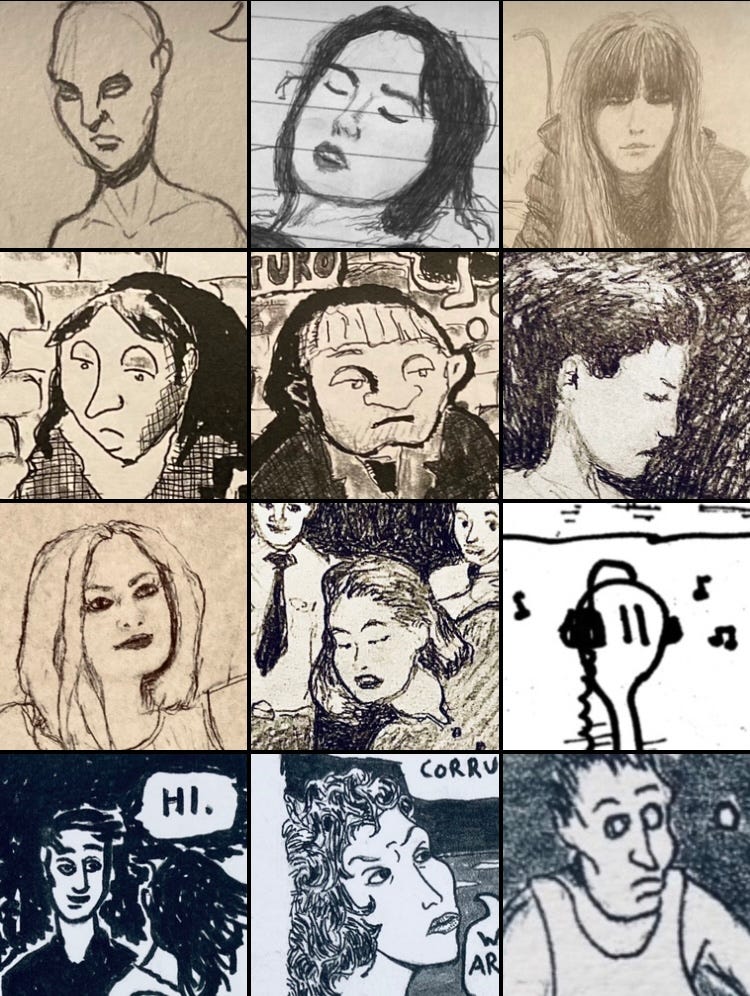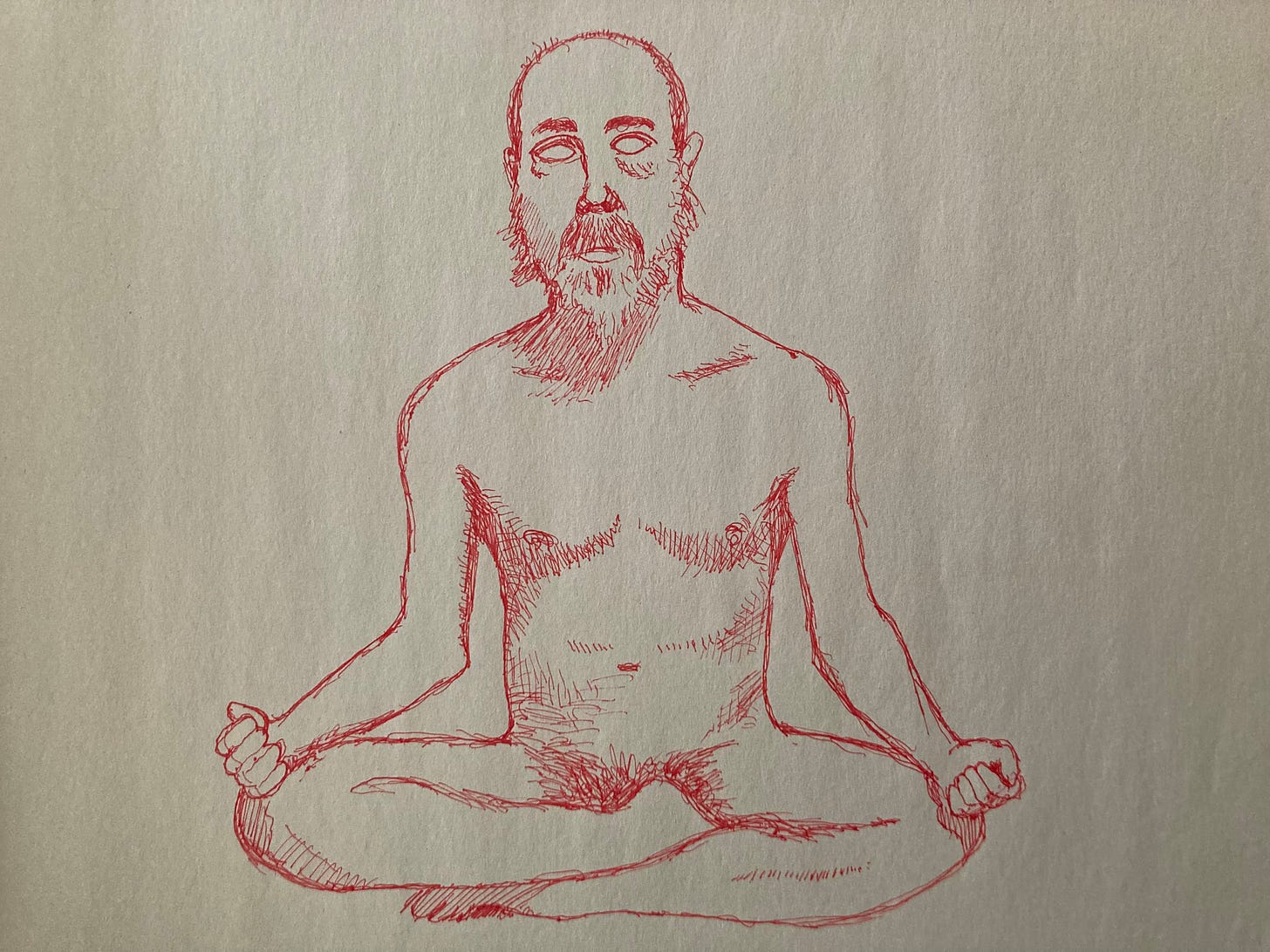I just finished reading the book The Mechanic Muse by Hugh Kenner after dealing with his mammoth tome The Pound Era. We’re being told that he was a foremost expert on literary High Modernism and I believe it. He writes in both books about Eliot, Pound, Joyce, Beckett, and then some of the lesser known figures like Wyndham Lewis.
I think I have a long way to go before I really grasp Modernism. I have this fantasy of writing something that explicates that the age of literature and arts in the midst of the Internet explosion is a kind of second Modernism, 100 years later. I don’t know where I’m getting this urge to draw parallels. It could be the kind of reaching that I do, almost as an experiment, to find insights I can call my own. I can’t be the only person to see it: the way that the coronavirus pandemic strengthened the grip of a kind of internal exile that, unlike the voluntary exile of writers like Hemingway and Stein to Paris in the 1920s, is not spatial or geographic so much as technological. Exiled onto the phone or laptop and conducting the business of literary production there.
Anyway I’m straying from a point about this reading of Modernism. Isms are diverting and fascinating. Kenner’s strengths are that his non-fictional writing style is idiosyncratic and an artform all by itself. Much of the Pound Era flew over my head like a flock of seagulls. What I did gather was that Ezra Pound, in his translation of Chinese poetry, obeyed his own rules and instincts and staked a position in the famous dichotomy between “translator as neutral technician” and “translator as artistic collaborator.” Should a translation of a poem be a creative act beyond the limits of the original poem? Should the translator add his own special sauce. Many say no, and judge translations accordingly. Pound rewrote, perhaps not even totally consciously, ancient Chinese poetry and used his poetic muscles to innovate sometimes laughable howlers. I can’t provide examples here — read Kenner to see what I mean — but it’s fascinating. Only an expert could highlight the errors and the ways they make new meaning, for better or worse. Similarly, in The Mechanic Muse, Kenner writes about the effect of typography and proofreading upon Joyce’s Ulysses. The textual recombination and synthesis of that novel’s creation, the amalgamation of prose styles and notes and scraps of paper written and pulled together under great labor, is a marvelous story. Kenner (again I have no examples) discusses the many ways that editors and proofreaders corrected what were meant to be deliberate typos in the text of Ulysses, that were not discovered until decades later in the 1984 Gabler edition. Joyce had to energetically fight this impulse at streamlining and homogenizing his novel, and jokes and wrinkles — humorous texture — were lost. It seems that only Kenner or a similar commentator could resurrect these minute details.
What is the original work of art? What are the intentions of the creator? We’re told by critics that we should ignore that. Kenner’s smaller, thinner book, written later, explicitly discusses the effects of technological advances of the late 19th and early 20th century on the literary culture of the time. Eliot wrote responding to the mechanization and standardization of the workday in England, ruled by clocks. Pound could not compose poetry as he often did, along with other poets of the time, without the intrinsic, regular formalism of the typewriter with its settings for indentation allowing for a new spatial awareness of the page. In a chapter which eluded me, typically, because I have not read much of his fiction, Beckett was recast as a writer aligned with the early languages of the computer such as FORTRAN, the if-then rule-based logic that applies science to a certain mechanized end.
I wanted to read the Kenner book on technology and Modernism because I desire to forge some new insight into what the Internet could mean for literary culture in the current moment. I think that, perhaps in a facile way, some analogy could be drawn to the way that for instance, social media is reorganizing our brains, and how this could impact the art of writing.
It’s somewhat beholden to the Sapir-Whorf hypothesis of linguistic relativism or to Robbe-Grillet’s theories about the function of the novel in a rapidly expanding modern age. Sapir-Whorf posited that the language one uses will actually shape one’s perception of reality, so that western languages are limited in their treatments of time divided into past-present-future whereas Native American languages such as Hopi in a relative sense may be more suited to describe quantum mechanics and quantum physics because their verbs have a different tense system and a different conception of time. Science could find a new expression according to the relativism of languages. And Robbe-Grillet’s “realistic novel” being a new tool for comprehending a new world beyond the strictures of the 19th century novel, which many are actually still writing, points to how the technological features of a future development must shape the artificers of fiction, or else we will be left blind to the new reality by old ways of making art.
Twitter is reshaping consciousness, of that I am certain. What is a new novel supposed to look like when people are already reading a hyper-serialized interactive novel populated by “real people” contributing and adding episodes over time, real people who are in certain fundamental ways, less than real, below real, surreal or ordeal or some version of real welded to a prefix we haven’t decided yet. My friends on Twitter, whose plot lines I read fervently, are real people but there is much obfuscation and fictionalization of the self going on there. I tailor my own presentation of myself online according to my sense of drama, character, psychological self-deception, class anxiety, competitive ego, etc. The whole thing is a never-ceasing upward-cascading waterfall of cryptic utterances that have to be decoded and interpreted through the lens of personality. It’s absorbing and highly addictive. A new novel would need to be constructed with some of this maddening and habit-forming texture in play, just as other consciousness-altering substances have been incorporated into fiction, or else it would contain devastating blind spots. That is not even scratching the surface of how we are rewired by the Internet.
Another area I will touch on briefly, which this tapestry of the Twitter novel illuminates for me, is the notion of publication. When is something published? I was not alive during the first three-quarters of the 20th century when no doubt, publication meant something somewhat specific and generalized. Books, articles, poems, and all other products of literary composition were published according to well-worn pathways in an industry called “publishing.” That industry still exists, but I think it would be foolish to say that the industry as a concept is not being disintegrated by the prevalence of social media where people are publishing “micro-blogs” everyday, sometimes thirty or forty times a day. The urge to express oneself, to publish one’s thoughts, can be satisfied instantly. No guarantee that it will be read. But the devilish impulse within you that spurs you to print something into the world, is sated very easily. Is this a good or bad thing. Some people on twitter are talented writers and compose hilarious and effective bits of writing which dazzles you and then disappears like confetti. Is this publishing? Elsewhere in an interview I talked about the privileged media of books vs online publication because books are more “real” and more permanent than a story or poem on a website which could be taken down or at least, could vanish into the sound of the Internet hardly to be seen again. But I’m not so sure and so confident of that statement. It makes me uneasy. Why couldn’t a novel that would take up 500 printed pages be put here on this substack? It could be done. But would anybody read it? Is that a crucial condition of publishing? It seems to me that all that is required to publish is to make some writing public in a concerted semi-organized fashion. I write a short piece of fiction and email it to my friend. It isn’t published, it was just privately circulated. But if I divide that story into thirty bite sized chunks and put it on Twitter — was it published? Did I just shoot myself in the foot and waste myself? My limited conception of “currentivism” tells me that “it’s all writing.” Podcasts are writing. Social media is writing. A radical rethinking of publication may be taking place due to technological advances in the way humans communicate and show each other their thoughts.
I’m not even going to get into a discussion of AI and literature. I haven’t soaked up the discourse nearly enough. I feel like currently that whole field is beyond me, and I want to interrogate, in as caustically a fashion as possible, my own preconceived notions of threat and insecurity in the face of “AI creation.” I just don’t want to do it right now. I feel like we have our hands full already on a creative and aesthetic plane just handling what the Internet is itself doing to us and how it is turning us into “spiritual cyborgs.” Uploaded with a new program. The Metamorphoses that are altering the poet’s lyre.
***
More drawings for you to look at:









